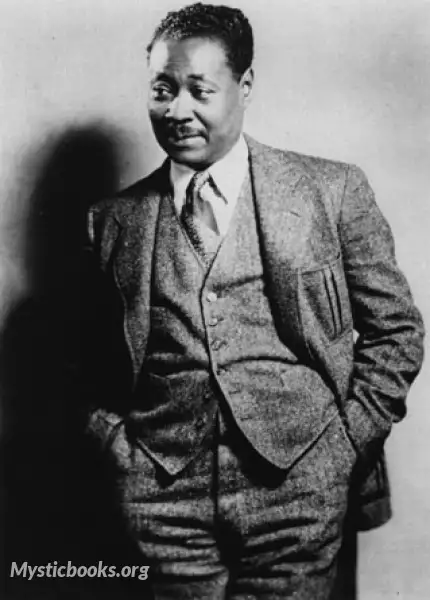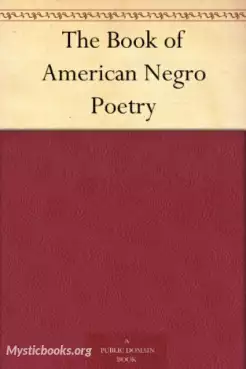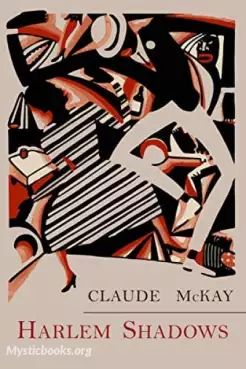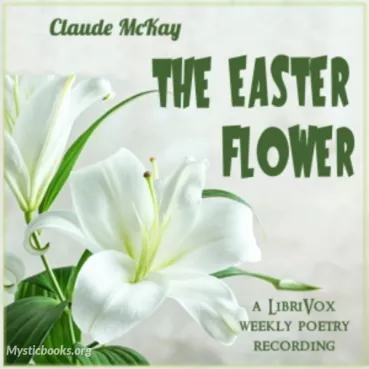
Timeline
Title
Country/Nationality
Claude McKay
Festus Claudius "Claude" McKay was a Jamaican-American writer and poet. He was a central figure in the Harlem Renaissance.
Born in Jamaica, McKay first traveled to the United States to attend college, and encountered W. E. B. Du Bois's The Souls of Black Folk which stimulated McKay's interest in political involvement. He moved to New York City in 1914 and in 1919 he wrote "If We Must Die", one of his best known works, a widely reprinted sonnet responding to the wave of white-on-black race riots and lynchings following the conclusion of the First World War.
A poet from the first, he also wrote five novels and a novella: Home to Harlem (1928), a best-seller that won the Harmon Gold Award for Literature; Banjo (1929); Banana Bottom (1933); Romance in Marseille (written in 1933, published in 2020), a novella, Harlem Glory (written in 1938-1940, published in 1990), and in 1941 a novel, Amiable With Big Teeth: A Novel of the Love Affair Between the Communists and the Poor Black Sheep of Harlem, which remained unpublished until 2017.
Festus Claudius McKay, known as Claude McKay, was born September 15, 1890 in Nairne Castle near James Hill in upper Clarendon Parish, Jamaica. He referred to his home village as Sunny Ville, a name given to the area by locals. He was the youngest child of Thomas Francis McKay and Hannah Ann Elizabeth Edwards, well-to-do farmers who had enough property to qualify to vote. He had seven siblings. McKay's parents were active and well-respected members of the Baptist faith. Thomas was a strict, religious man who struggled to develop close relationships with his children due to his serious nature. In contrast, Hannah had a warmth that allowed her to give love freely to all of her children. Thomas was of Ashanti descent, while Hannah traced her ancestry to Madagascar. Claude recounted that his father would often share stories of Ashanti customs with the family.
McKay became an American citizen in 1940. In 1943 McKay started "Cycle Manuscript", a collection of 54 poems, all but four of them sonnets, often with political subjects and often in tones of satiric invective. After the manuscript was rejected by Harper and Dutton, he wrote to his old friend and editor Max Eastman, asking him "to look through" all the poems and to make any needed revisions. Despite Eastman's efforts, McKay's collection was not published during his lifetime. It is included in his posthumous Complete Poems. Its editor William J. Maxwell discusses this manuscript's history in an extended note. In the mid-40s McKay began to associate with Catholic cultural activists and studied Catholic social theory, first in New York City and then in Chicago where he moved in April 1944; he was baptized there in October 1944. Before his conversion, he had written to Max Eastman, about "doing a lot of reading and research, especially on Catholic work among Negroes—Because if and when I take the step I want to be intellectually honest and sincere about it". (McKay to Eastman, June 1, 1944). Five months after his baptism, he wrote Eastman to assure him that "I am not less the fighter." (McKay to Eastman, October 16, 1944, Rpt. in Passion 305). In 1946, advised to seek a better climate for his health, he moved first to Albuquerque and then to San Francisco, before returning to Chicago in 1947.
On May 22, 1948, he died from a heart attack in Chicago at the age of 58 and was buried at Calvary Cemetery in Queens, New York.
Books by Claude McKay

The Book of American Negro Poetry
The Book of American Negro Poetry, curated by James Weldon Johnson, is a landmark anthology that gathers some of the most influential African-American poets of the early 20th century. This collection, first published in 1922, captures the evolving ar...

Harlem Shadows
An award winning Jamaican poet who writes passionately about his birth home and his adopted home, USA. Claude McKay vividly describes family life, love, hate, work, and social life. The reader obtains a strong sense of black life through his colorful...

The Easter Flower
The poem explores themes such as rebirth, growth, and the power of nature to inspire hope and renewal. The poem is structured in a traditional form, with rhyming stanzas that add to its musicality and flow. The language is simple yet powerful, and t...